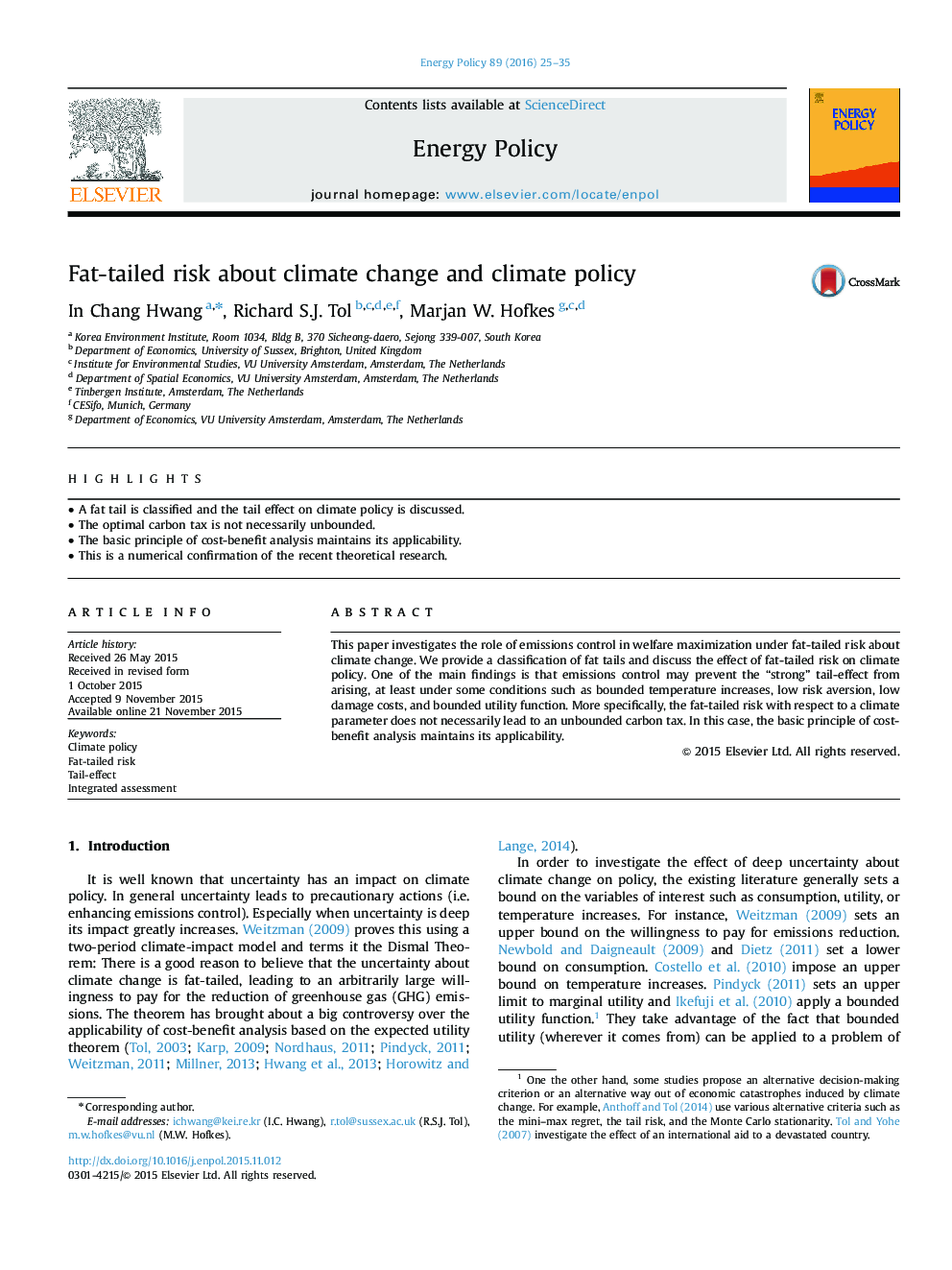| Article ID | Journal | Published Year | Pages | File Type |
|---|---|---|---|---|
| 7399908 | Energy Policy | 2016 | 11 Pages |
Abstract
This paper investigates the role of emissions control in welfare maximization under fat-tailed risk about climate change. We provide a classification of fat tails and discuss the effect of fat-tailed risk on climate policy. One of the main findings is that emissions control may prevent the “strong” tail-effect from arising, at least under some conditions such as bounded temperature increases, low risk aversion, low damage costs, and bounded utility function. More specifically, the fat-tailed risk with respect to a climate parameter does not necessarily lead to an unbounded carbon tax. In this case, the basic principle of cost-benefit analysis maintains its applicability.
Keywords
Related Topics
Physical Sciences and Engineering
Energy
Energy Engineering and Power Technology
Authors
In Chang Hwang, Richard S.J. Tol, Marjan W. Hofkes,
